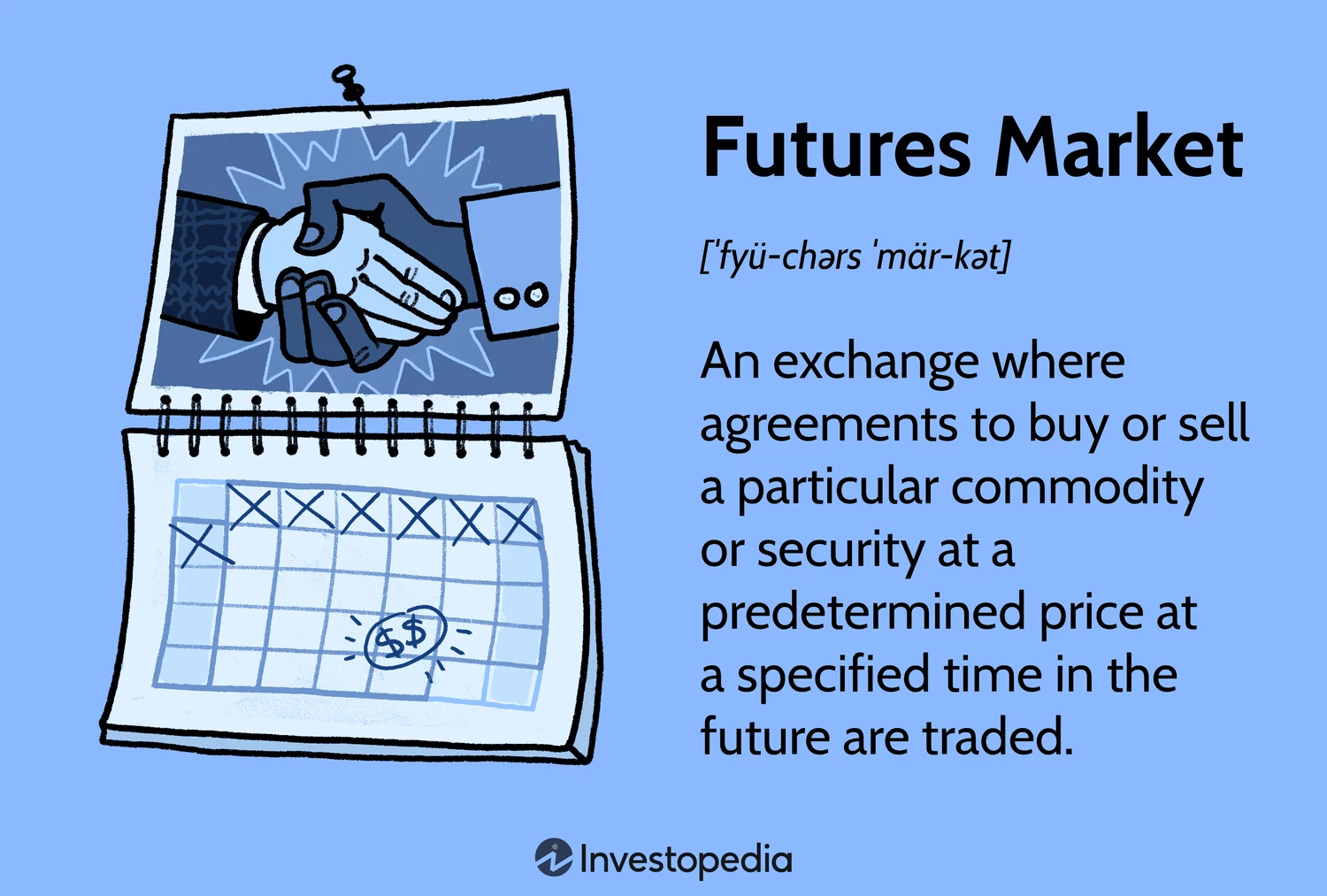
What Is a Futures Market?
A futures market serves as an auction platform where traders engage in the buying and selling of commodity and futures contracts for future delivery. These futures are essentially agreements traded on exchanges that secure the delivery of a commodity or security at a predetermined price.
Prominent examples of futures markets include the New York Mercantile Exchange (NYMEX), the Chicago Mercantile Exchange (CME), and the Chicago Board of Trade (CBoT).
Traditionally, futures trading involved physical trading pits in financial centers like New York and Chicago. However, as technology advanced, most futures trading transitioned to electronic platforms, mirroring the evolution seen across other markets in the 21st century.
Key Takeaways
- A futures market serves as a trading ground for futures contracts, where participants deal in derivative products.
- The Commodity Futures Trading Commission (CFTC) in the U.S. primarily governs futures markets, overseeing standardized contracts traded on exchanges.
- Modern futures trading is predominantly executed electronically, with exchanges like CME and ICE leading the way.
- Unlike stock markets, futures markets operate 24 hours a day.
The Basics of a Futures Market
To grasp the concept of a futures market, it’s essential to understand the fundamentals of futures contracts, the underlying assets of these markets.
Futures contracts are utilized by producers and suppliers to mitigate market volatility. These stakeholders engage investors willing to assume the risks and rewards of fluctuating markets.
Futures markets provide a platform for trading these contracts, where financial products are exchanged for future delivery at predetermined prices. The scope of futures markets has expanded beyond agricultural contracts to encompass financial products and interest rate valuations.
Unlike traditional securities, futures contracts can be created by increasing open interest, contributing to the broader financial system, particularly during uncertain market conditions.
Major Futures Markets
Leading futures markets operate clearinghouses to facilitate revenue generation and trade processing. Notable entities with self-operated clearinghouses include the Chicago Mercantile Exchange and the ICE.
Futures markets typically align with regulatory bodies like the Commodity Futures Trading Commission (CFTC) in the U.S. and local regulatory authorities in their respective countries.
Revenue for futures market exchanges is derived from trading activities, trade processing, and fees charged to traders and firms for access and membership.
Futures Market Example
For example, in a futures market scenario, a coffee farm may sell green coffee beans at $4 per pound to a roaster. By entering a futures contract, both parties secure profits by fixing prices. If the coffee price fluctuates, the investor compensates the farmer, or the roaster retains profits based on the predetermined rates.
This illustrates how futures markets enable stakeholders to manage price volatility and ensure stability in their transactions, benefiting both producers and investors in the process.







